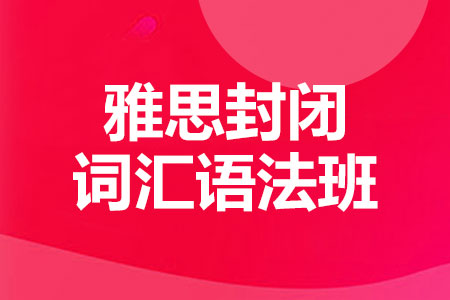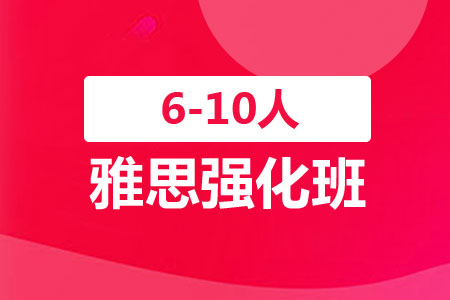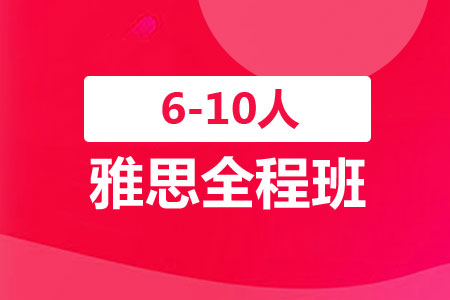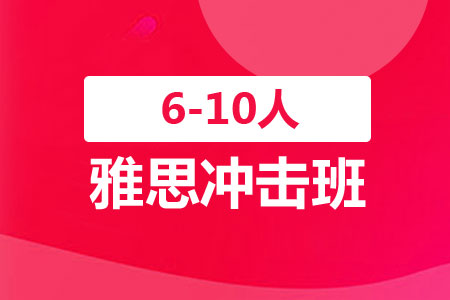剑桥雅思4Test2阅读passage2原文+译文:澳大利亚的另类疗法
上一篇文章新航道雅思分享的是:剑桥雅思4Test2阅读passage1原文+译文:语言的消失。小编接着介绍剑桥雅思4Test2阅读passage2原文+译文:澳大利亚的另类疗法。当然还有剑桥雅思4Test2阅读passage2题目+答案解析,我们将在下篇分享。
剑桥雅思4Test2阅读passage2原文+译文:澳大利亚的另类疗法
ALTERNATIVE MEDICINE IN AUSTRALIA
澳大利亚的另类疗法
The first students to study alternative medicine at university level in Australia began their four-year, full-time course at the University of Technology, Sydney, in early 1994. Their course covered, among other therapies, acupuncture. The theory they learnt is based on the traditional Chinese explanation of this ancient healing art: that it can regulate the flow of ‘Qi’ or energy through pathways in the body. This course reflects how far some alternative therapies have come in their struggle for acceptance by the medical establishment.
1994年初,澳大利亚批另类疗法学生在悉尼科技大学开始了他们为期四年的全职课程。除了学习其他一些疗法之外,他们的课程还包括针灸术,他们所学的理论基于中国古代对这门古老疗法的解释:那就是针灸可以调节“气”或能量在人体神经系统中的流通。这门课程足以反映另类疗法在争取医疗机构认同的斗争中所取得的成果。
Australia has been unusual in the Western world in having a very conservative attitude to natural or alternative therapies, according to Dr Paul Laver, a lecturer in Public Health at the University of Sydney. ‘We’ve had a tradition of doctors being fairly powerful and I guess they are pretty loath to allow any pretenders to their position to come into it.’ In many other industrialised countries, orthodox and alternative medicine have worked ‘hand in glove’ for years. In Europe, only orthodox doctors can prescribe herbal medicine. In Germany, plant remedies account for 10% of the national turnover of pharmaceuticals. Americans made more visits to alternative therapists than to orthodox doctors in 1990, and each year they spend about $US 12 billion on therapies that have not been scientifically tested.
由于对自然或另类疗法所采取的极端保守态度,澳大利亚在西方国家中独树一帜。悉尼大学公共健康系博士Paul Laver评价道:“我们有个传统,医生是相当权威的,我猜他们很不愿意让那些觊觎他们位置的冒牌货得逞。”在其他许多工业国家里,正统医生和另类医师早已亲密无间地合作多年了。在欧洲,只有正统医生才可以开草药。在德国,草药占了药品销售额的10%。1990年美国人去看另类疗法医师的次数比去看传统医生的次数还多,而每年,他们花在未经科学测试的疗法上的钱竟髙达约120亿美元。

Disenchantment with orthodox medicine has seen the popularity of alternative therapies in Australia climb steadily during the past 20 years. In a 1983 national health survey, 1.9% of people said they had contacted a chiropractor, naturopath, osteopath, acupuncturist or herbalist in the two weeks prior to the survey. By 1990, this figure had risen to 2.6% of the population. The 550,000 consultations with alternative therapists reported in the 1990 survey represented about an eighth of the total number of consultations with medically qualified personnel covered by the survey, according to Dr Laver and colleagues writing in the Australian Journal of Public Health in 1993. ‘A better educated and less accepting public has become disillusioned with the experts in general, and increasingly sceptical about science and empirically based knowledge,’ they said. ‘The high standing of professionals, including doctors, has been eroded as a consequence.’
在过去20年中,由于人们对传统医疗不再迷信,另类疗法在澳大利亚慢慢流行起来。在1983年进行的全国健康调査中,有1.9%的人说此前两周内曾经去看过按摩师、理疗家、整骨医师、针灸医生或草药医生。到了1990年,这个数字已经攀升到澳大利亚人口的2.6%。根据Laver博士和他的同事们刊登在1993年《澳大利亚公共健康期刊》上的报道:在1990年调査中,另类疗法医生进行了55万次诊断,这个数字几乎占了调查中所有医疗诊断的八分之一。“总体而言,受过良好教育又不那么轻信的民众已经对失望了,而且对科学和经验主义知识已经越来越怀疑了,”博士们说,“结果,包括医生在内的专业人士的崇高地位也就大打折扣。”
Rather than resisting or criticising this trend, increasing numbers of Australian doctors, particularly younger ones, are forming group practices with alternative therapists or taking courses themselves, particularly in acupuncture and herbalism. Part of the incentive was financial, Dr Laver said. ‘The bottom line is that most general practitioners are business people. If they see potential clientele going elsewhere, they might want to be able to offer a similar service.’
越来越多的澳大利亚医生,特别是那些年轻一些的医师,非但没有抵制或是批判这样一个潮流,反而开始与另类疗法医师联合开业,或是干脆自己去学习相关课程,尤其是针灸和草药医学。Laver博士说,部分动机当然是出于经济考虑。“关键在于大多数全科医生都是商人。如果他们看到潜在的客户去别处看病,他们就想也要能提供类似的服务。”
In 1993, Dr Laver and his colleagues published a survey of 289 Sydney people who attended eight alternative therapists’ practices in Sydney. These practices offered a wide range of alternative therapies from 25 therapists. Those surveyed had experienced chronic illnesses, for which orthodox medicine had been able to provide little relief. They commented that they liked the holistic approach of their alternative therapists and the friendly, concerned and detailed attention they had received. The cold, impersonal manner of orthodox doctors featured in the survey. An increasing exodus from their clinics, coupled with this and a number of other relevant surveys carried out in Australia, all pointing to orthodox doctors’ inadequacies, have led mainstream doctors themselves to begin to admit they could learn from the personal style of alternative therapists. Dr. Patrick Store, President of the Royal College of General Practitioners, concurs that orthodox doctors could learn a lot about bedside manner and advising patients on preventative health from alternative therapists.
1993年,Laver博士和他的同事们发表了一项调查报告,报告包括289名曾到8家另类疗法诊所寻求治疗的悉尼市民。这些诊所共有25名另类治疗师,提供相当广泛的另类疗法。接受调查的人都患有慢性疾病,正统疗法治疗对这些疾病的效果微乎其微。病人们评价说他们喜欢另类疗法医师所采取的全面的治疗手段,也喜欢那里友善热情、细致入微的关怀。这次调査揭示了正统医生的冷漠态度。病人从诊所中大批离去,加上其他一些相关的全国性调查的结果,矛头直指正统医生的不足之处,这就使得他们开始承认应该学习一下另类疗法医师的亲切态度。就连皇家医学院的Patrik Stone博士也赞同说,正统医生应该多学习另类疗法医师对待病人的态度,还有他们给病人的预防建议。
According to the Australian Journal of Public Health, 18% of patients visiting alternative therapists do so because they suffer from musculo-skeletal complaints; 12% suffer from digestive problems, which is only 1% more than those suffering from emotional problems. Those suffering from respiratory complaints represent 7% of their patients, and candida sufferers represent an equal percentage. Headache sufferers and those complaining of general ill health represent 6% and 5% of patients respectively, and a further 4% see therapists for general health maintenance.
根据《澳大利亚公共健康期刊》,18%的病人因为得了肌肉骨骼方面的疾病而去看另类医师;12%的人则是因为消化系统疾病,这个数字只比因为感情问题而去就医的人多1个百分点。呼吸系统疾病患者和假丝酵母过敏者各占7%。头疼就医者和整体感觉身体不适而就医者分别占到了6%和5%,还有4%的人看医生只是为了保持身体健康。
The survey suggested that complementary medicine is probably a better term than alternative medicine. Alternative medicine appears to be an adjunct, sought in times of disenchantment when conventional medicine seems not to offer the answer.
这项调查表明,与另类疗法这个字眼相比,互补疗法是个更为合适的称呼。前者听起来仿佛是正统疗法的附庸,一种只有当你对传统疗法的无能为力失望后,才会去追寻的东西。
想要考7分的烤鸭,你可能还需要了解:雅思7分是什么水平 和 雅思评分标准 。
去英国留学的同学,你还需要了解:2017高度可信担保方院校
暑期将至,关于烤鸭关心的:上海雅思培训班学费多少 ?上海雅思培训班收费 ?上海雅思1对1培训价格 ?请在线咨询哦!
剑桥雅思真题系列下载:







